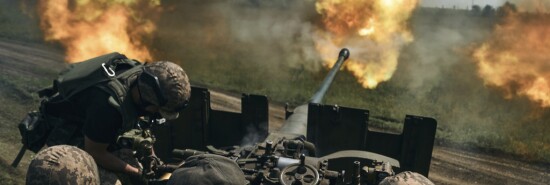
How Ukraine has benefited by delaying its counteroffensive
Tom Rogan
Video Embed
Some analysts anticipated that Ukraine’s counteroffensive against Russian forces would have begun by now. But Ukraine has gained tactical benefits by delaying its action.
First, President Volodymyr Zelensky is using meetings in Europe to secure new military and financial aid commitments.
PRICE TAG FOR BIDEN SIGNATURE CLIMATE LAW BALLOONS TO MULTIPLE OF INITIAL ESTIMATES
Meeting with British Prime Minister Rishi Sunak, Zelensky secured more armed aerial drones and hundreds of air defense missiles on Monday. This provision joins the United Kingdom’s decision to send Storm Shadow cruise missiles. Other European governments have also made new arms commitments in recent days. Zelensky’s diplomacy has thus secured more weapons for his military than his military had even two weeks ago. At the margin, this strengthens Ukraine’s ability to conduct offensive action. The key interest in any counteroffensive, after all, will be to penetrate Russian front lines with speed. The more offensive weapons Ukraine can get, the more success its offensive is likely to have.
Ukraine’s delayed counteroffensive also imposes anticipatory pressure on the Russian Armed Forces.
Russian commanders know that their ability to defeat any Ukrainian counteroffensive will rest heavily on their ability to blunt its spearhead lines of effort. But that, in turn, means Russian forces must be held at a high state of readiness. They must be able to mobilize when and where the spearheads first appear. Maintaining such readiness comes at a logistical and psychological cost. Russian logistics trains and mobile infantry/armored forces must be ready to move at short notice. They cannot wait in more comfortable rear positions. At the same time, the need to prepare for the inevitable Ukrainian storm deprives Russian soldiers of easy rest. It’s not easy to sleep, after all, if you expect you might be dead the next morning. In contrast, Ukrainian soldiers are motivated by the sense that they’re about to strike a hammer blow against an invading enemy.
This is not an insignificant problem for Moscow.
Russian forces are already deficient in equipment, munitions reserves, logistics support, and effective command and control. Tensions between the Russian military and Yevgeny Prigozhin’s Wagner Group are also escalating in an increasingly absurd fashion. As the Washington Post reports, U.S. intelligence reporting suggests that Prigozhin may have offered Ukraine intelligence on Russian military positions in return for Ukraine’s relief of pressure on Wagner. Whether this intelligence report is accurate or not, fear and infighting now heavily define Russia’s war effort.
Put simply, while the ambition and strategy of Ukraine’s counteroffensive are not yet clear, its looming portent poses an escalating problem for Russia.
